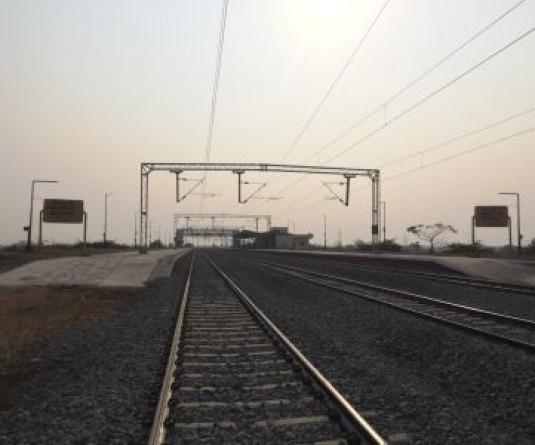
New Delhi, January 16 (Agencies): Irked by the Allahabad High Court’s ‘casual approach’ in acquitting a man charged with rape and kidnapping, the Supreme Court has observed that criminal justice system is “not working” properly in the country and recommended urgent steps to stem the rot. “We are constrained to observe that criminal justice system is not working in our country as it should,” said a bench of justices Aftab Alam and R M Lodha.
It advised that the criminal cases relating to offences against the State, corruption, dowry death, domestic violence, sexual assault, financial fraud and cyber crimes are fast-tracked and decided in a fixed time frame, preferably, within three years. Slamming the High Court for setting aside the trial court order through a “cryptic and perfunctory” verdict, based on “conjectures and surmises”, it cautioned, “We must remember that a strong and efficient criminal justice system is a guarantee to the rule of law and vibrant civil society.” Upset by the High Court acquitting “an accused convicted of a serious crime” without “application of mind”, the bench went on to list several maladies plaguing the country’s criminal justice system and recommending urgent steps to stem the rot.
“The criminal trials are protracted because of non-appearance of official witnesses on time and the non-availability of the facilities for recording evidence by video conferencing,” said the bench. “The public prosecutors have their limitations. The defence lawyers do not make themselves available and the court would be routinely informed about their pre-occupation with other matters. The courts remain over-burdened with the briefs listed on the day and they do not have adequate infrastructure,” the bench said. Listing other maladies, the bench said, “The adjournments thus have become routine and the casualty is justice. It is imperative that the criminal cases relating to offences against the State, corruption, dowry death, domestic violence, sexual assault, financial fraud and cyber crimes are fast-tracked and decided in a fixed time frame, preferably, within three years,” the bench said.
It was high time that immediate and urgent steps were taken in amending the procedural and other laws to achieve the above objectives, it cautioned. While expressing its frustration over various shortcoming plaguing the judiciary, the bench also touched the issue of police reform saying they “are yet to take place despite (September 2006) directions of this (apex) court.” Restraining itself from making elaborate comment over the issue, being adjudicated by a different three-judge bench, it, however, said, “The investigators hardly have professional orientation. They do not have modern tools. And on many occasions impartial investigation suffers because of political interference,” the bench added.
The bench which set aside the High Court’s ruling and restored the conviction and seven-year imprisonment of a Hardoi resident Chhotay Lal, who had kidnapped a 17-year-old girl from his village on September 19, 1989 in collusion with two of his friends and raped her repeatedly, while keeping her in captivity for nearly a month. After coming to know of the kidnapping of his sister by Lal, the girl’s elder brother initially tried to secure her release through the kidnappers’ relatives. But eventually, he reported the matter to police nine days later after his efforts failed.
The police traced the girl on October 13 that year and arrested the trio. During the trial, one of the accused died while the second one was acquitted. On the basis of prosecution evidence, the court, however, convicted prime accused Chhotay Lal and sentenced him to seven years jail term. But the High Court acquitted him on an appeal by him. The High Court released him on three grounds, which included late registration of the FIR and uncertainty about the girl’s age, which the court said “could even be 19 years”. While acquitting Lal, the court had also described the girl as “habitual of sexual intercourse” as there was no internal or external injury on her body.
Irked by the High Court’s ruling “based on conjectures and surmises”, the apex court said, “We are indeed surprised by the casual approach with which the High Court has dealt with the matter. Its judgement is not only cryptic and perfunctory but it has also not taken into consideration the crucial evidence on record,” the bench said. “On flimsy grounds, the accused convicted of a serious crime of kidnapping and rape has been acquitted. There is no application of mind to the evidence of the prosecutrix at all,” said the bench. “The High Court was not at all justified in taking a different view or conclusion from the trial court,” the Supreme Court said.
It advised that the criminal cases relating to offences against the State, corruption, dowry death, domestic violence, sexual assault, financial fraud and cyber crimes are fast-tracked and decided in a fixed time frame, preferably, within three years. Slamming the High Court for setting aside the trial court order through a “cryptic and perfunctory” verdict, based on “conjectures and surmises”, it cautioned, “We must remember that a strong and efficient criminal justice system is a guarantee to the rule of law and vibrant civil society.” Upset by the High Court acquitting “an accused convicted of a serious crime” without “application of mind”, the bench went on to list several maladies plaguing the country’s criminal justice system and recommending urgent steps to stem the rot.
“The criminal trials are protracted because of non-appearance of official witnesses on time and the non-availability of the facilities for recording evidence by video conferencing,” said the bench. “The public prosecutors have their limitations. The defence lawyers do not make themselves available and the court would be routinely informed about their pre-occupation with other matters. The courts remain over-burdened with the briefs listed on the day and they do not have adequate infrastructure,” the bench said. Listing other maladies, the bench said, “The adjournments thus have become routine and the casualty is justice. It is imperative that the criminal cases relating to offences against the State, corruption, dowry death, domestic violence, sexual assault, financial fraud and cyber crimes are fast-tracked and decided in a fixed time frame, preferably, within three years,” the bench said.
It was high time that immediate and urgent steps were taken in amending the procedural and other laws to achieve the above objectives, it cautioned. While expressing its frustration over various shortcoming plaguing the judiciary, the bench also touched the issue of police reform saying they “are yet to take place despite (September 2006) directions of this (apex) court.” Restraining itself from making elaborate comment over the issue, being adjudicated by a different three-judge bench, it, however, said, “The investigators hardly have professional orientation. They do not have modern tools. And on many occasions impartial investigation suffers because of political interference,” the bench added.
The bench which set aside the High Court’s ruling and restored the conviction and seven-year imprisonment of a Hardoi resident Chhotay Lal, who had kidnapped a 17-year-old girl from his village on September 19, 1989 in collusion with two of his friends and raped her repeatedly, while keeping her in captivity for nearly a month. After coming to know of the kidnapping of his sister by Lal, the girl’s elder brother initially tried to secure her release through the kidnappers’ relatives. But eventually, he reported the matter to police nine days later after his efforts failed.
The police traced the girl on October 13 that year and arrested the trio. During the trial, one of the accused died while the second one was acquitted. On the basis of prosecution evidence, the court, however, convicted prime accused Chhotay Lal and sentenced him to seven years jail term. But the High Court acquitted him on an appeal by him. The High Court released him on three grounds, which included late registration of the FIR and uncertainty about the girl’s age, which the court said “could even be 19 years”. While acquitting Lal, the court had also described the girl as “habitual of sexual intercourse” as there was no internal or external injury on her body.
Irked by the High Court’s ruling “based on conjectures and surmises”, the apex court said, “We are indeed surprised by the casual approach with which the High Court has dealt with the matter. Its judgement is not only cryptic and perfunctory but it has also not taken into consideration the crucial evidence on record,” the bench said. “On flimsy grounds, the accused convicted of a serious crime of kidnapping and rape has been acquitted. There is no application of mind to the evidence of the prosecutrix at all,” said the bench. “The High Court was not at all justified in taking a different view or conclusion from the trial court,” the Supreme Court said.






